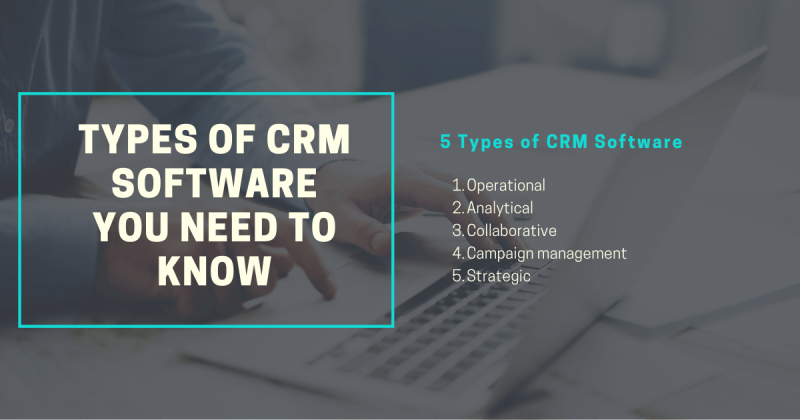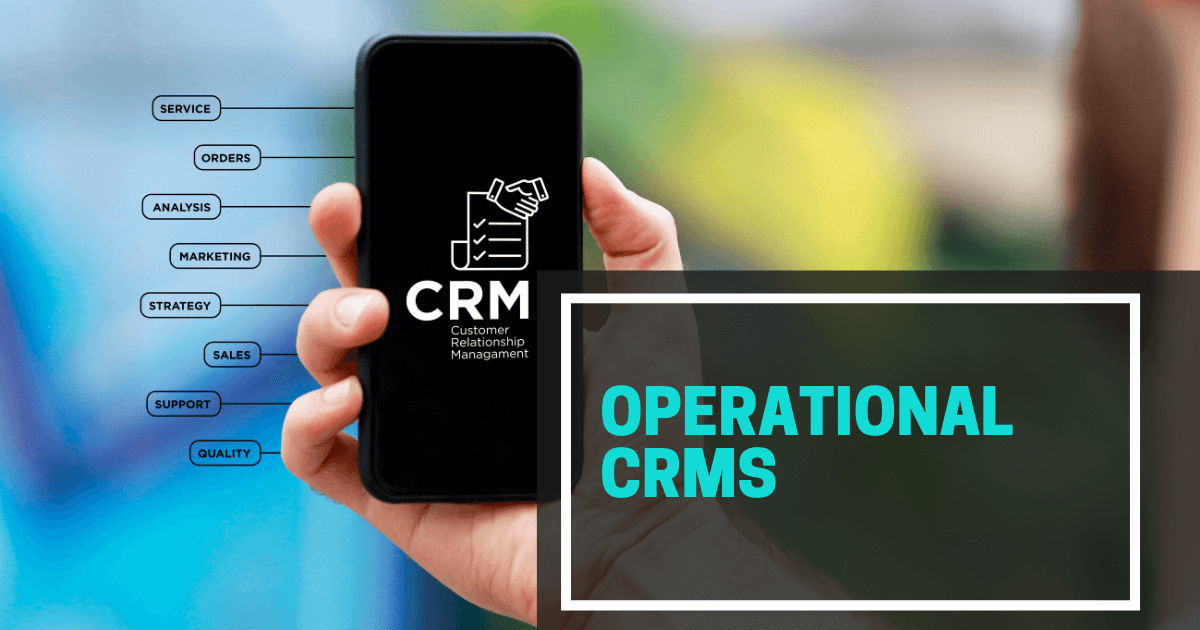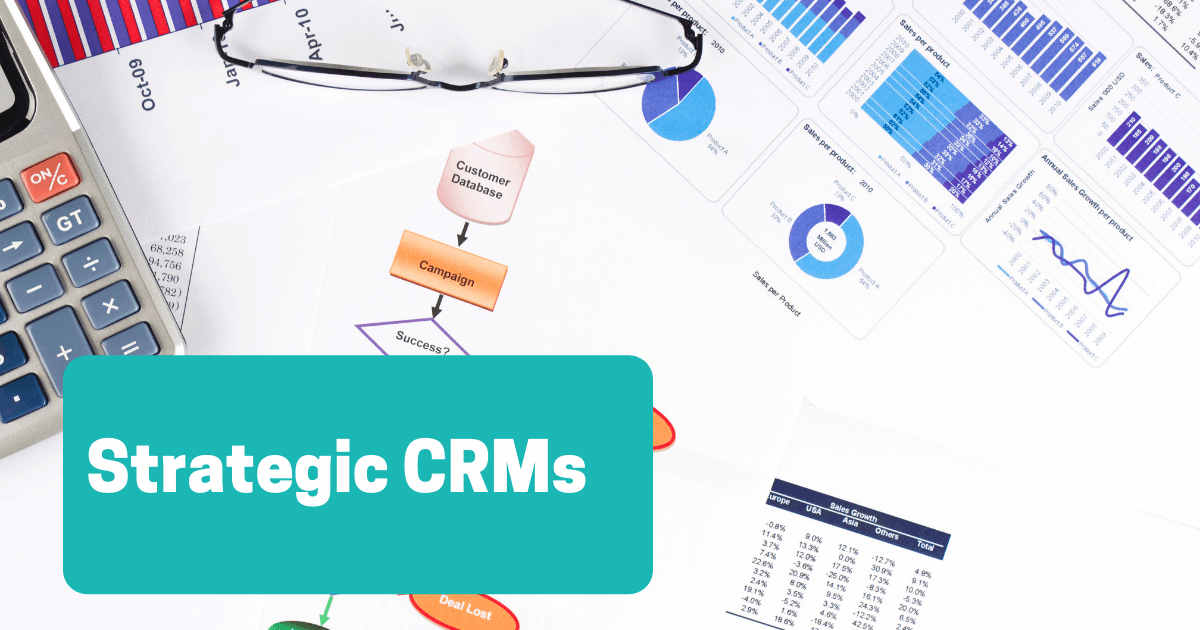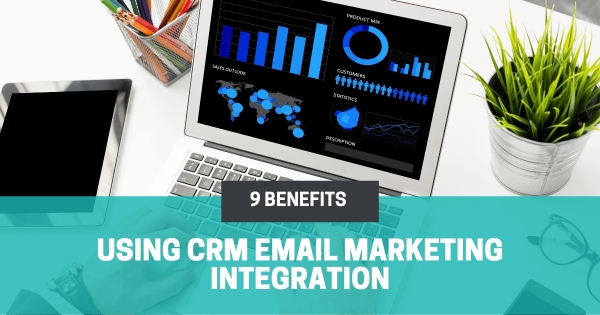
If you're a business owner, then you know that customer relationship management (CRM) is essential to your success. Companies of all sizes use CRM software to manage their customer data, track sales and marketing efforts, and streamline operations. But with so many different types of CRM software on the market, how do you know which one is right for your business?
In this blog post, we will discuss the five most common types of CRM software and help you decide which one is best for you.
What Is CRM Software?
Customer relationship management (CRM) software is a category of software that helps businesses manage customer data and interactions. A CRM can store and manage data about your customers, such as contact information and purchase history. CRM software can also help you track and manage customer interactions, such as phone calls, emails, and text messages.
No matter what industry you're in or what size your company is, CRM software can help you manage your customer relationships more effectively. The benefits of CRM software include:
- Improved customer retention rates
- Increased sales and revenue
- Better customer insights
- More efficient operations
- Improved customer satisfaction
The crucial advantage that comes with using CRM systems is that they can help you improve your business processes across all departments.
Types of CRM Software You Need to Know
Choosing the right CRM software for your business can be overwhelming. With so many different types of CRM software on the market, how do you know which one is right for you?
In this section, we will discuss the five most common types of CRM software and help you decide which one is best for you.
- Operational - Operational CRM software is designed to help you manage your day-to-day operations. It can track and monitor sales activity, customer interactions, and other key performance indicators (KPIs).
- Analytical - Analytical CRM software is designed to help you make better decisions about your business. It can provide insights into your customer behavior, sales trends, and marketing campaigns.
- Collaborative - Collaborative CRM software is designed to help you improve communication and collaboration within your company. It can help you manage projects, share files, and track customer interactions.
- Campaign management - Campaign management CRM software is designed to help you manage your marketing campaigns. It can track customer behavior, measure campaign performance, and segment customers for targeted marketing.
- Strategic - Strategic CRM software is designed to help you achieve long-term business goals. It can provide insights into customer trends, competitor activity, and market opportunities.
Let’s now take a closer look at each one of them.
Pro Tip: Top 7 Marketing Automation Trends in 2024 You Need to Know Right Now

1. Operational CRMs
Operational CRM software is designed to help you manage your day-to-day operations. It can track and monitor sales activity, customer interactions, and other key performance indicators (KPIs).
Operational CRM software can be used for automation, including:
- Marketing automation - Automating your marketing tasks, such as email marketing, text messages, and other forms of marketing communications.
- Sales automation - Automating your sales tasks, such as lead capture and follow-up, quote generation, and order processing.
- Service automation - Automating your service tasks, such as case management, ticketing, and customer support.
Operational CRM software is a good choice for businesses that want to automate their operations and improve their bottom line. It can provide insights into your sales and marketing activity, as well as your customer service processes.
Here at Pulse, our CRM system is easy to use and helps our clients automate their business processes. Our software is designed to help businesses improve their sales, marketing, and customer service operations.
2. Analytical CRMs
Analytical CRM software is designed to help you make better decisions about your business. It can provide insights into your customer behavior, sales trends, and marketing campaigns.
Analytical CRM software can be used for:
- Data analysis - Analyzing your customer data to identify trends and patterns.
- Reporting - Generating reports on your sales, marketing, and customer service activity.
- Forecasting - Predicting future trends based on your historical data.
Analytical CRM software is a good choice for businesses that want to make data-driven decisions about their marketing, sales, and customer service strategies. This type of software can help you understand your customers better and make more informed decisions about your business.
Let Us Help You Get Started!
Pulse CRM delivers more than software. We’re your partner in success.
We fully set up your CRM, including importing your data, configuring sales and marketing automations, designing branded email templates, writing engaging email copy, setting up sales pipelines, and much more.
3. Collaborative CRMs
Collaborative CRMs allow different departments to share information on customer interactions. This type of CRM is typically used by large businesses with multiple departments that need to be able to access customer data.
Some advantages of collaborative CRMs include:
- Centralized customer data - All departments have access to the same customer information, so everyone is working with the most up-to-date data.
- Improved customer service - When different departments can see how customers have interacted with other departments, they can provide better service.
- Increased sales - Having all customer information in one place makes it easier for salespeople to identify upselling and cross-selling opportunities.
If your business has multiple departments that need access to customer data, a collaborative CRM may be the best option for you. Collaborative CRMs are also good for franchise businesses, where each franchise location needs to be able to access customer data.
At Pulse, you can manage all of your franchise locations efficiently with our robust franchise management software. Franchisees can access customer data, share pre-built templates, and more from a centralized location, so you can keep your business running smoothly.
4. Campaign Management CRMs
You can easily generate more revenue through intelligent marketing campaigns.
A campaign management CRM helps businesses design, execute, and track marketing campaigns. This type of CRM is perfect for companies that rely heavily on marketing to drive sales.
With campaign management CRMs, you see a few main features:
- Email Marketing - Send targeted email blasts to customers based on their preferences, past behavior, or other criteria you set up.
- Lead Management - Nurture your leads until they’re ready to buy with targeted content and campaigns.
- Lead Nurturing - Automatically send leads through a series of emails or other content based on how they interact with your campaigns.
- Reporting and Analytics - See how well your campaigns are performing and make data-driven decisions about where to invest your marketing dollars.
If you’re looking for a CRM that can help you generate more revenue through intelligent marketing campaigns, then-campaign management is the way to go.

5. Strategic CRMs
If you’re an organization ready to increase sales, profits, and market share, you need a strategic CRM. This type of CRM is designed for businesses that want to take their operations to the next level and focuses on putting the customer first.
Strategic CRMs hone in on maintaining long-term customer relationships and improving business processes. It provides features such as sales forecasting, marketing automation, and customer service optimization.
A strategic CRM can help you:
- Optimize Sales and Marketing Processes - Automate tasks, personalize communications, and measure results to make your sales and marketing efforts more efficient.
- Gain Customer Insights - Uncover trends and preferences so you can create products and services that meet customers’ needs.
- Measure Performance - Use key performance indicators (KPIs) to track progress and adjust course as needed to achieve your desired outcomes.
Because of its comprehensive functionality, a strategic CRM is best for businesses that have outgrown their basic CRM or for those who want to move from point-of-sale (POS) systems to a more complete CRM solution.
Top Components to Look For in a CRM
Before you can figure out which CRM is best for your business, you need to know what to look for in a CRM.
Not all CRMs are created equal, so it’s important to make sure the one you choose has the features and functionality that meets your needs.
Here are some of the most important factors to consider:
- Ease of Use - CRMs should be easy to use. They should have a user-friendly interface that doesn’t require a lot of training to learn.
- Flexibility - CRMs should be flexible enough to meet your changing needs. They should be able to accommodate new users, processes, and data.
- Features - The features you need will depend on the type of business you have. Make sure the CRM has the features you need, such as customer management, sales automation, marketing automation, and reporting.
- Reporting Features - The ability to generate reports on your data is essential. You should be able to track sales, marketing, and customer service performance to help you make better decisions.
The best way to find the right CRM for your business is to take the time to assess your needs and compare different CRMs. Once you find one that meets your needs, you’ll be on your way to improving your sales and marketing efforts.
Let Us Help You Get Started!
Pulse CRM delivers more than software. We’re your partner in success.
We fully set up your CRM, including importing your data, configuring sales and marketing automations, designing branded email templates, writing engaging email copy, setting up sales pipelines, and much more.
Conclusion
If you want to provide your customers with a genuinely excellent experience, you need a CRM. Not all CRMs are the same, so it’s important to find one that meets your specific needs. The five types of CRM software I discussed are the most common types and should give you a good starting point for finding the right CRM for your business.
Request a demo today to see how our CRM at Pulse can help you improve your business processes.





